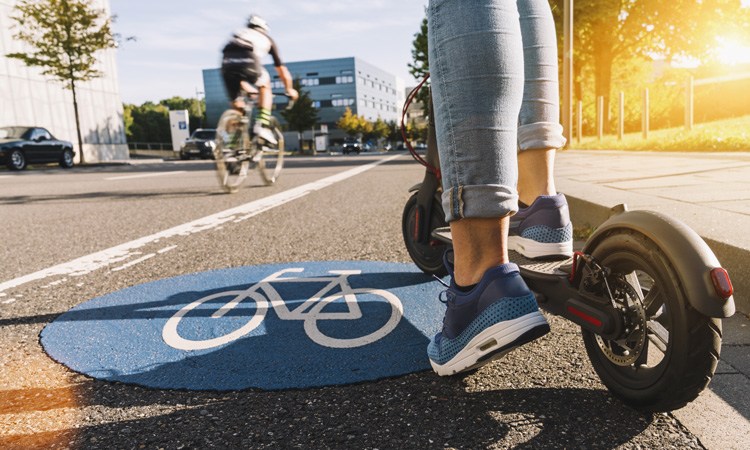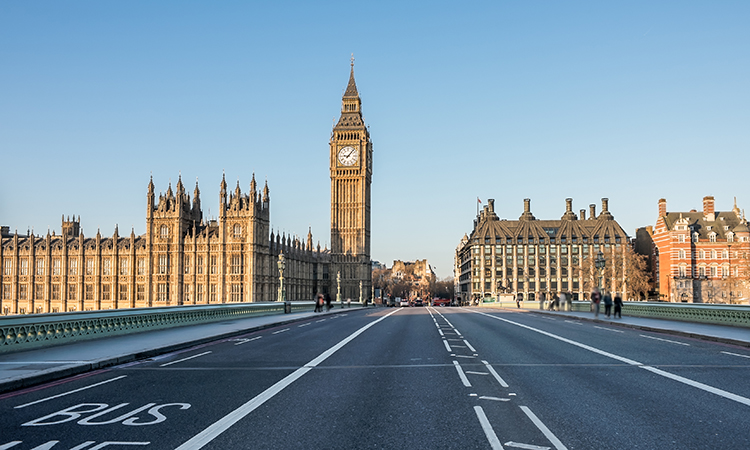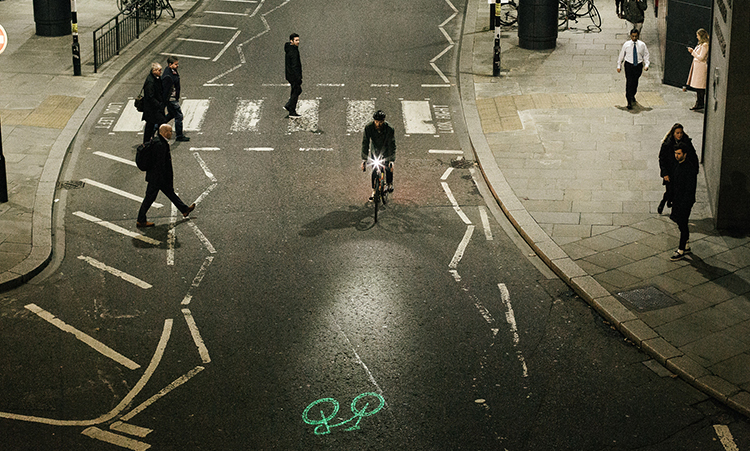Assessing the state of micromobility with Beryl’s Philip Ellis
- Like
- Digg
- Del
- Tumblr
- VKontakte
- Buffer
- Love This
- Odnoklassniki
- Meneame
- Blogger
- Amazon
- Yahoo Mail
- Gmail
- AOL
- Newsvine
- HackerNews
- Evernote
- MySpace
- Mail.ru
- Viadeo
- Line
- Comments
- Yummly
- SMS
- Viber
- Telegram
- Subscribe
- Skype
- Facebook Messenger
- Kakao
- LiveJournal
- Yammer
- Edgar
- Fintel
- Mix
- Instapaper
- Copy Link
Posted: 7 April 2021 | Joshua Minchin - Intelligent Transport | No comments yet
Philip Ellis talks safety and the impact of COVID-19 on micromobilty with Intelligent Transport’s Joshua Minchin, as more and more local authorities around the world begin to implement some form of micromobility scheme.


There are plenty of industries that could lay claim to being the most affected by COVID-19, yet the transport industry suffered significantly from a drastic reduction in passenger numbers basically overnight.
Yet, the micromobility market is one that has shown resilience in spite of all of the challenges of the past 12 months or so. Intelligent Transport’s Junior Editor Joshua Minchin sat down with Philip Ellis, Co-founder and CEO of micromobility operator Beryl, to discuss the how COVID-19 has impacted the sector and get his thoughts on some of the biggest developments within e-scooter and bike-sharing worldwide.
With Beryl boasting presence in places such as Norwich, Bournemouth, and Watford, Ellis is well-placed to assess where the industry finds itself after the turbulence of 2020, and what should and should not be the responsibility of operators when it comes to the safety of bike and scooter sharing schemes.
What impact has COVID-19 had on the micromobility market?
Philip Ellis: Micromobility was a fast-growing market before COVID-19, but I think the pandemic has amplified it in two ways. First of all, a boom in adoption, particularly of shared micromobility and of micromobility in general, has happened as people seek healthy travel options which are also socially distant. As much as anything, in the first wave in Europe this was driven by the fact that the streets were safe. People were out cycling across Europe and North America because it was quite nice to do so. All of a sudden there was no cars on the street. As people were adopting micromobility, hopefully a certain number of people established new behaviours and established new enjoyment for it.
Secondly, there has been a longer-term shift in policy towards governmental programmes that encourage active travel. In the UK there has been a gear change with the Transforming Cities Fund. In Europe, there are infrastructure programmes with specific funding for active travel. In the US, there’s new infrastructure, there’s a new designation, a new appreciation of micromobility. There are bigger, longer-term policy shifts towards funding, and programmes that encourage active travel round the world, so I think COVID-19 has had both of those short-term and long-term effects.
Do you think, once the world starts to return to some form of normality, more needs to be done by governments to make it just as pleasant to cycle or use scooters?
Philip Ellis: Overall it’s part of a rethinking that I think is happening more and more, but certainly it’s not yet a position where it’s at critical mass or crossed over into totally acceptable mainstream political opinion. It’s not like smoking for example, in that is still not socially unacceptable for people to speed around city centres in giant cars polluting the atmosphere and making streets unhealthy to walk and live on. It’s not as socially unacceptable as it is to walk into a creche and start smoking, but it’s equally as damaging.
More can definitely happen, more needs to happen, and it needs to be driven by the political end of the spectrum to continue to raise awareness that the state of our roads and streets is the result of a proactive choice that we’re all making, and that needs to change.
From our perspective as an operator, our job is to first of all deliver products and services that people want to use, and think really carefully about what that means, and try really hard to create products that people want to use. Make it easy for the consumer because that means it has to be safe, it has to be equitable, it has to be accessible, it has to be affordable, it has to be a pleasure. It has to be something that people really enjoy doing, and it’s our job to focus on delivering that.


Empty streets meant many people felt safer cycling in big cities such as London
What have you learned from the cities you have rolled out in so far?
Philip Ellis: I think what we’ve learned is when you look at all of our schemes now, we have a mixture of bikes and some level of electric vehicle as well. I think what cities and towns have to understand is there are real policy benefits to cycling and e-bikes, and I think we’ve seen the positive impact that bike-share systems have on cities in encouraging cycling adoption and active travel. However, running a bike share scheme is commercially very challenging compared to running an electric scooter scheme, which commercially is a lot easier.
I spent 10 years of my career desperately trying to come up with ways to encourage cycling in cities. We’ve always thought cycling in cities would be an important way, and an ever-increasingly important way, of people getting from place to place. We’ve spent a lot of time and effort thinking about how to do that.
Then you see electric scooters rolling out and people flocking to them – that’s excellent. We should take lessons from that user experience and learn from what the customers are telling us in terms of adoption and price point, what people are willing to pay for scooters and to a lesser extent e-bikes.
That’s one of the things that we’ve learned – we really can’t, and we would not advocate for, just flipping the dial over to e-scooters. What we would advocate for is broadening the addressable market towards including e-scooters into our platform so that cities are able to offer different vehicles for different prices. Serving a bike journey is much cheaper than serving an e-scooter journey.Having the full mix of vehicles in the city is really a valuable way to make sure that we’re actually getting the maximum benefit out of micromobility in our cities.
In Norwich, for example, after introducing scooters, perhaps within a month or so, our customers had increased by about 35 per cent. Of all users, 75 per cent of them were using a mixture of vehicles. Overall, we’re increasing the number of people who are using the service basically just by introducing e-scooters.
Once people are in the service, they tend to use a variety of modes because people make a variety of journeys. They want to pay different things for different journeys and use different modes depending on the journey. For example, short utility journeys are good on a bike because it’s quite cheap and quite quick, or someone might want to do a longer journey on an e-bike because they’re carrying something. People do different things with different journeys and they’re willing to pay different amounts for those varying services. Overall, most of our users are self-selecting, but we’re increasing the addressable market by offering more vehicle choices to people. I think we’re therefore increasing the impact of these transport systems, of this micromobility system in the cities where we operate them, by introducing this mixture.
We don’t want to flip all the way over to one mode or another because it just isn’t the right thing to do, but we do want to make use of the innovations that the industry is bringing forward to elevate the role of a micromobility system within a city.
How can micromobility operators reassure the public that e-bikes and e-scooters are safe?
Philip Ellis: There’s two aspects to safety. An operator’s responsibility is to do absolutely everything it possibly can. It’s the first thing that you think about at the beginning of the day when you walk through the door, and the last thing when you walk home. It’s in relation to your customers and in relation to your staff. That is the lesson of every big ticket transport system that has existed, and it shouldn’t be any different for micromobility providers.
We as an operator think about it a lot. We actually started life as a manufacturer of safety equipment for cyclists, making bike lights and innovative laser lights to protect the visibility of cyclists. That’s how we grew in the industry, by selling innovative safety products to bike-share systems all the way back in 2015.
An operator does everything they can and local authorities have to make sure that their operators are doing everything that they can. There’s things within scooters that are inherently unknown. I think you have to also look at the vehicle mode and decide: “Do we know enough yet about these scooters to know exactly how safe they are?” I’m not sure if we do, to be honest. The data is still coming through. The wheels are much smaller, you’re much closer to the ground, you go much faster. There are more and more users getting on scooters. I know that none of our customers in the UK have done scooter ability or scooter proficiency training at school in the same way that some of our bike customers might have.
Operators have to communicate as much as they can and do everything they can, but cities also have to do their bit. Segregated scooting lanes, if that’s what they become, are what is required to make vulnerable road users safer.
We’ve developed a scooter standard and a training program for existing Bikeability trainers so that they can add this continual professional development module onto their current Bikeability training, so they can become scooter proficiency trainers or the equivalent. I think that is also a really important part of the safety conversation.


Beryl started off as a manufacturer of bike safety products, such as the laserlight
Do you think some form of scooter proficiency training should be compulsory?
Philip Ellis: It shouldn’t be regulated in the form of “You have to do this.” When you bought a bike and cycled you didn’t have to complete cycle proficiency training. You shouldn’t have to do it because that’s just going to be a barrier to adoption, which is a barrier to people making sustainable choices around how they travel.
If at policy level central government and local authority think that scooting is going to be a long-term part of how people are going to get around, then, absolutely we as an industry, and authorities overall, have to fund the necessary training for it as well.
The thing that we say to our scooter riders is “treat it as a bike.” The reason that is an effective message is because people know how you should cycle. No one is born with an inherent understanding of how you cycle, it’s a learned norm because of years of investment in things like cycle proficiency as it was when I was at school, or Bikeability as it is now.
If it’s going to exist in the long-term then I think there’s an obligation on the industry and on regulators or cities, to do the same with the scooter, so that appropriate behaviour, such as not scooting on the pavement, becomes a norm.
Biography


Phil has helped lead the business as a manufacturer of innovative consumer cycling products, to a global product and technology business supplying retail and bike share systems.
Related topics
Air Quality, Alternative Power, Business Models, COVID-19, Fleet Management & Maintenance, On-Demand Transport, Passenger Accessibility, Passenger Experience, Public Transport, Security & Crime, Sustainable Urban Transport, Transport Governance & Policy, Vehicle & Passenger Safety
Related modes
Bikes & Scooters
Related cities
UK
Related organisations
Beryl
Related people
Phil Ellis








